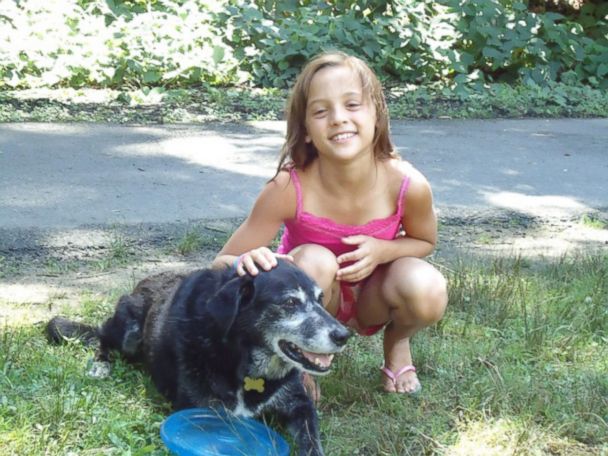Veterinarian Shares Personal Story of Having His Own Dog Put to Sleep

Courtesy Douglas Palma
When I stood surrounded by a group of sobbing people, I would softly remark, "I understand." But I didn't truly understand. I had never experienced the same kind of loss.
Veterinarians are faced daily with the difficult choice of euthanasia. It's our role to guide owners to a decision that's in the best interest of their pets while helping them come to terms with the passing of their beloved family member.
August 4 th, 2011 started out like any other day. My morning clinics were interrupted by a phone call from my wife Eileen.
"Rufus didn't eat breakfast," she said.
"Bring him to the hospital," I answered.
While it wouldn't be the first time Eileen rushed our dog to the hospital, I couldn't shake an uneasy feeling. When you're surrounded by disease, you think the worst and when your dog is 15, you're always waiting for the other shoe to drop.
Eileen and I rescued Rufus from an Igloo Cooler when we were in college. A yellow Lab had hopped the fence and impregnated the Border Collie next door, forcing her into show dog retirement. Her owners were so eager to get rid of the pups, they crammed them all in a cooler and carried them to their back porch where they plopped them out one by one, unloading them off on whoever would take them.
While he never lived up to my childhood dream dog, Rufus the Great Dane, in stature, he more than exceeded any expectations as a companion and family member. He was there when I got down on one knee and proposed amid a pile of groceries. He moved with us to Columbus, Ohio where I attended vet school, and then adjusted to life in Manhattan for my internship. A Frisbee dog that could swim all day and night if allowed too, he was one of a kind.

Courtesy Douglas Palma
As he walked through the doors of the animal hospital, I instructed my colleague to perform some tests. "I can't be involved in the decision process," I said, and busied myself in an appointment.
I was greeted by the radiologist on the way out of my appointment.
"I was hoping we could get the CT scan today on this patient," I started.
"Buddy, I'm sorry. He has metastasis," he said.
It took me a minute to register that he was talking about Rufus. I was bordering on catatonic but had to pull myself together to tell my wife and little girl. "On average, less than a month," I heard myself saying again and again to owners over the years.
We all dropped to the floor crying and hugging Rufus. I had to be strong for my family, so I transitioned into "doctor mode" and did an ultrasound. There it was, a tumor of the spleen and to make things worse, it was bleeding into the abdomen. As a veterinarian, this is an all too familiar a situation, whereby internal bleeding from a splenic tumor results in the need for emergency surgery to stop the bleeding.
Unfortunately, when the tumor spread to the lungs, the ability to extend his life with surgery was gone. While Rufus was not in shock, it was a matter of time when a small bleed would become a large bleed.
How could this happen? What kind of veterinarian am I? I couldn't even help my own dog. But, I knew that no matter how hard we try to stop death, it was inevitable.
"You should take your dog home and spend some quality time with him," I heard echoing in my brain remembering all the times I told owners they should "spoil" their pets. As we drove home from the hospital, I thought about what Rufus would want. I thought to myself, "If he is going down, he will do it with a smile on his face."
We took him to his favorite place, the bike path that looped around a large duck pond. As we stood at the edge of the water throwing sticks for him, he smiled back at us with a look of pure joy as if to say, "what a wonderful day". We let the Frisbees fly. Definitely slower than in his glory days, Rufus raced back and forth chasing down each one but never actually returning it directly to us, typical.

Courtesy Douglas Palma
Finishing the loop around the duck pond we grappled with the idea of seeing how long he could be with us, and whether it was better to let him go out on top, rather than wait till this damn disease took him out. After, much debate we agreed that we didn't ever want him to suffer and we would have to put him down. I always say that our pets are the most selfless beings in the world and that it is our job to be selfless when they need us to be. Struggling with our decision we walked and cried.
The next day we quietly and stealthily sneaked into the hospital and had a colleague put him to sleep while Eileen and I held him in our arms. As he drifted off, he looked at us, as if to say, "What's wrong guys? I'm here for you." "No buddy, we're here for you," I thought.
In the years it has taken to write this piece I think about Rufus every day. His memory still burns strong, with his dog tag firmly attached to my key chain as a daily reminder to be half the moral character that Rufus was. Those two days are with me every time I have to break bad news or perform euthanasia. Now when I say, "I understand," I do.
Douglas Palma is a veterinarian at The Animal Medical Center in New York, N.Y., specializing in internal medicine.